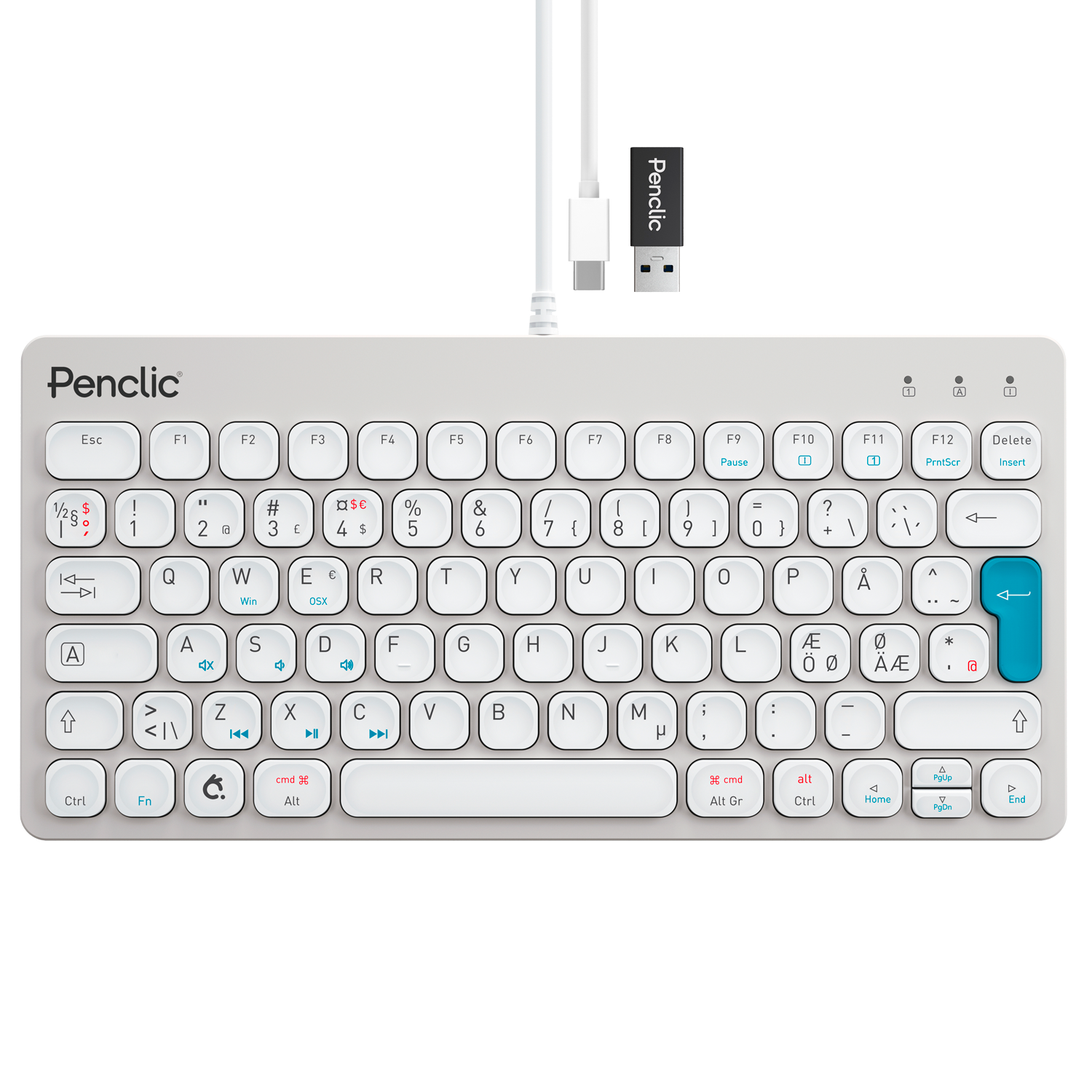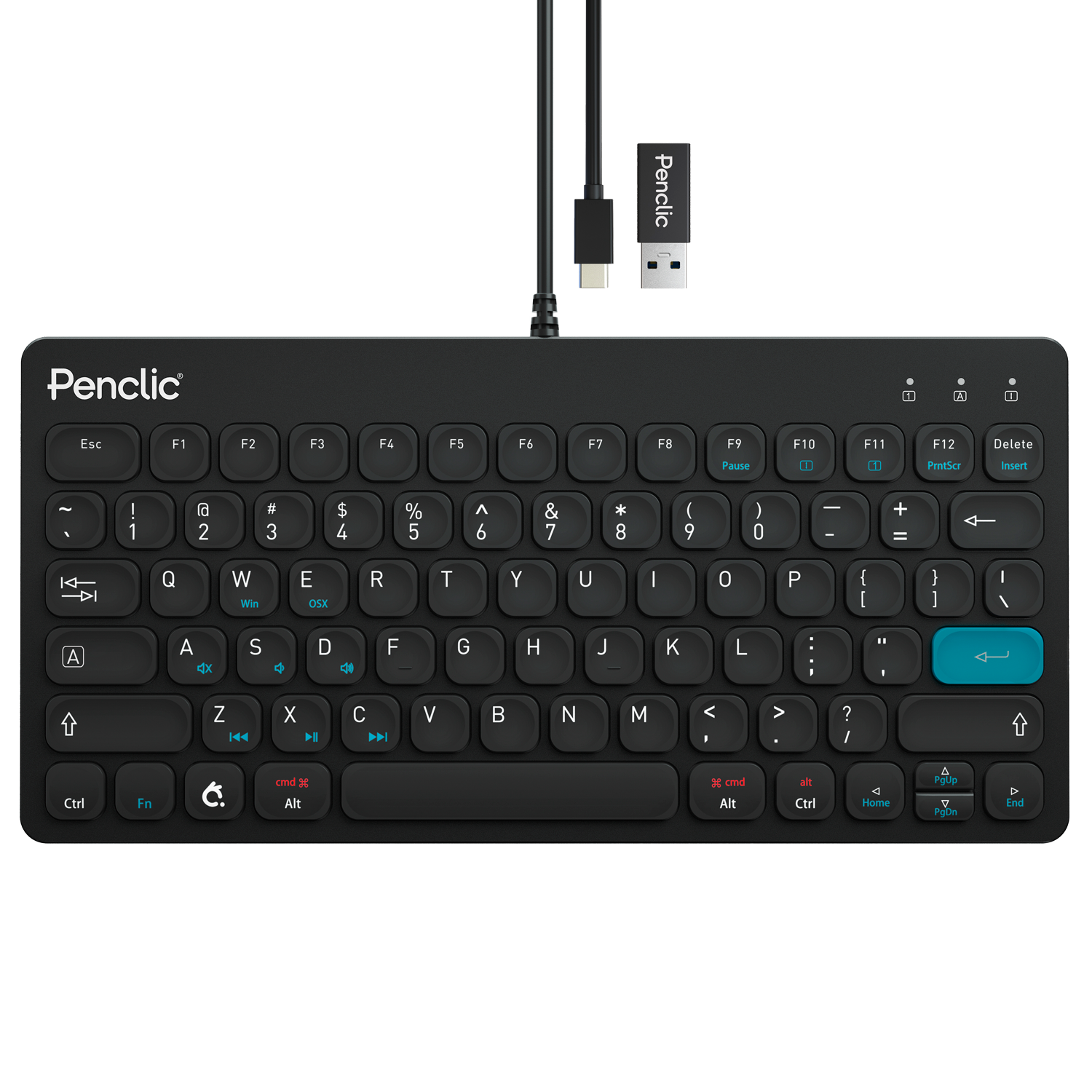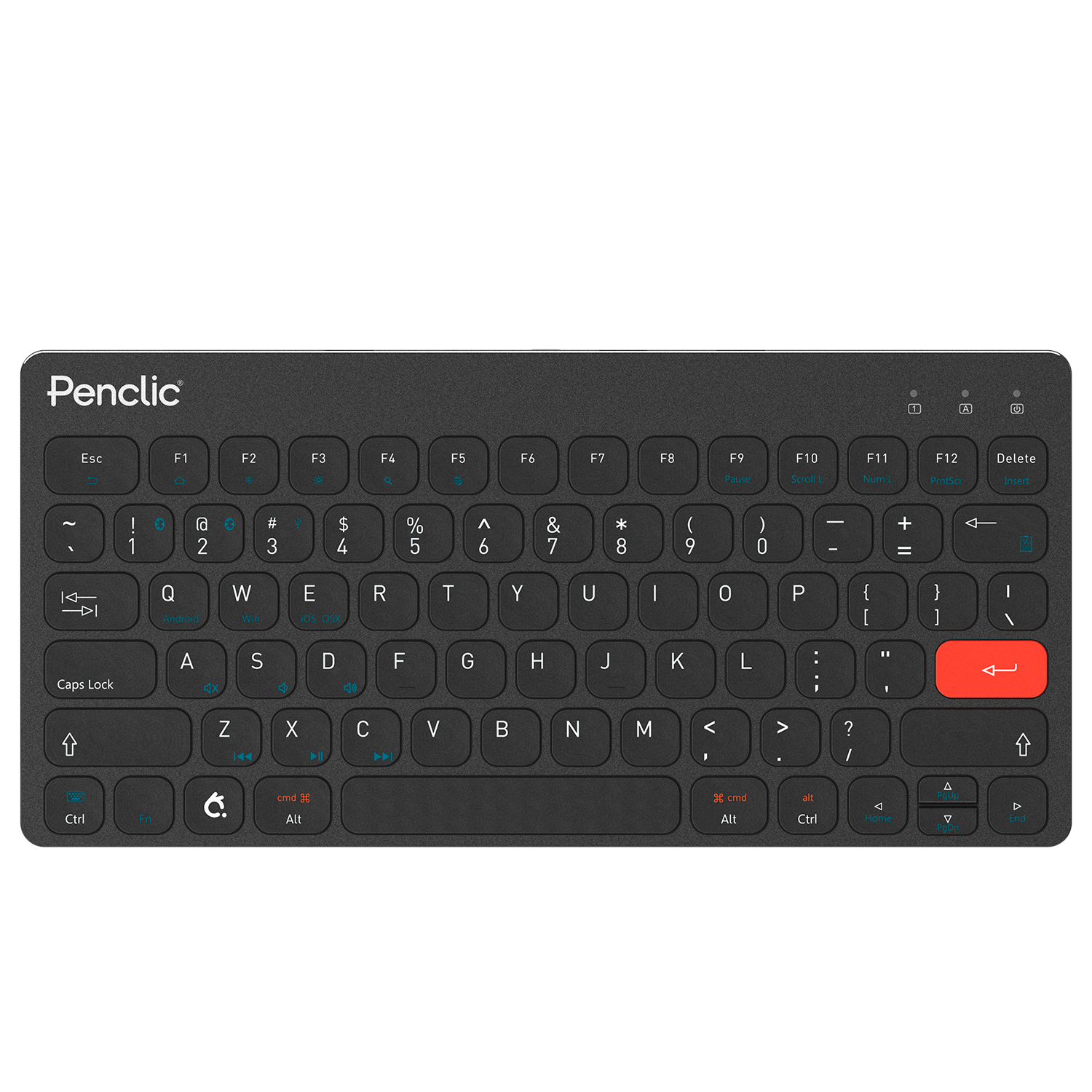Advantages & Disadvantages of Mechanical Keyboards
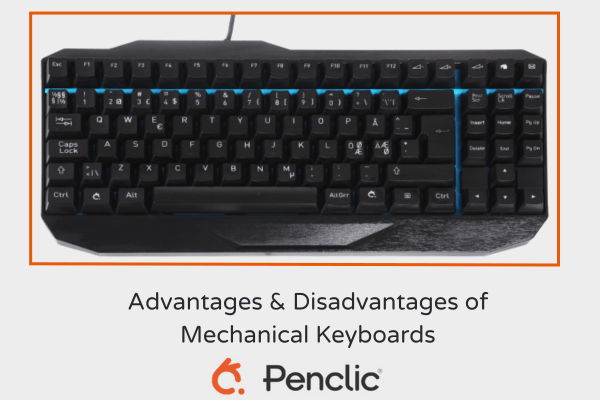
Is a Mechanical Keyboard the Right Choice for You?
For many who grew up in the early days of personal computers, they used a mechanical keyboard, in part, because it was the only choice. As newer technology became capable of producing less expensive, sleeker keyboards, mechanical keyboards became rarer.
That does not, however, mean they are obsolete or that their continued usage is a mere product of nostalgia.
There are plenty of reasons why many people swear by mechanical keyboards to the point of wanting to customize their own. But would a mechanical keyboard improve your computing experience? That depends on everything from how much you type to whether you value portability to even how you want it to feel or sound when your fingers strike a key.
What is a Mechanical Keyboard?
While there are many traits that most mechanical keyboards share, what makes a mechanical keyboard mechanical lies immediately beneath the keys.
Each key includes its own mechanical switch that activates when you press it. If you take off the keycap, you can see it. One key, one mechanism.
That is in stark contrast to many other designs like a membrane keyboard, where the keys aren’t really keys at all but rather areas within a pressure pad. In these, the keystroke is registered when pressure is applied to a specific area of the underlying membrane, rather than the activation of an individual switch.
All other traits of all mechanical keyboards, good and bad, go back to this one difference.
Reasons You Might Prefer a Mechanical Keyboard
1. Durability & Longevity
Mechanical keyboards look sturdier, and to some degree most are. Because of the higher profile of the switches themselves, mechanical keyboards are never going to be as thin or light-weight as a membrane keyboard can. Since they don’t have to worry about being the thinnest or the lightest, many mechanical keyboards are made out or sturdier materials than their counterparts.
The outer casing isn’t the primary reason for their longevity, though. That has to do with what is inside.
The switches on the mechanical keyboards are designed to handle roughly 10x as many clicks over their lifetime than membrane keyboards. They are also more easily repaired. If one switch does break down, you can replace just the individual switch. It is also relatively easy to replace individual keycaps should one be damaged, or the lettering has rubbed off, but more on that later.
If you don’t do a ton of typing and just get a new keyboard included every time you get a new computer, this might not matter as much to you. You’ll likely be trading keyboards before either model would break down.
If your job involves a lot of typing or data entry or you plan for your keyboard to outlive several computers, this could be a big plus and eliminate the disadvantage *spoiler alert* that mechanical keyboards tend to be more expensive.
2. Improved Typing Feel, Speed & Accuracy
When you strike a key on a mechanical keyboard, you know it has been struck.
The keys are responsive, bouncing back up after they’ve been struck and giving you a better tactile experience while pressing them down.
Being able to feel immediately that the keystroke has been registered both can make for a better typing experience and improve the accuracy of your typing. This improved accuracy and awareness can, in many cases, lead to increased typing speed.
As with many of these advantages, how much benefit you get will vary. If you don’t have a real preference for the typing feel of the mechanical keyboard, or you don’t do enough typing for it to really matter, the benefits here will be limited.
3. More Accurate Technical Performance
Some of the lower-end membrane keyboards can have difficulty recognizing multiple keys struck at once or in extremely quick succession. Because each keystroke triggers its own switch, these types of problems are nearly non-existent on mechanical keyboards.
Called N-Key Rollover, this can be a big problem for gamers or very fast typists who are striking many keys either at once or in extremely quick succession in cases where the order of keys struck can sometimes be very important.
4. Customizability
Remember earlier when we mentioned we’d get back to the ease of replacing keycaps on mechanical keyboards? Well, along with easier repairs, the ease with which you can replace keycaps on mechanical keyboards creates a wealth of options to customize your keyboards.
For some, customizing mechanical keyboards has become a legitimate hobby. While some of this involves swapping out switches for the precise feel and sound that the customizer is looking for, in many cases a distinctive look is what the user is after. In this case, the focus is on finding keycaps that fit the user’s precise vision for the keyboard.
The Drawbacks of Mechanical Keyboards
1. Portability
Theoretically, there isn’t any difference in how portable a mechanical keyboard is. You can throw it in your bag and use it on different locations and computers just the same as any other type of keyboard.
It might just not be as convenient.
That’s not to say the difference is as great as lugging your desktop computer everywhere versus having a laptop. It isn’t.
The mechanical keyboard is heavier, though, and they are usually taller, so they will take up more space.
How much that difference matters is all down to the individual user.
2. Price
While the technology behind the mechanical keyboard might have been around for longer, that doesn’t mean that the price is lower. Generally, it isn’t. If you are seeking a top-of-the-line keyboard because of the amount you use it everyday, a difference of $20 or so might not seem like much.
If you are just getting a keyboard because, well, it’s a lot tougher to use a computer without it, the price point might be a bigger detriment.
One Advantage or Disadvantage — Depending on Your Point of View
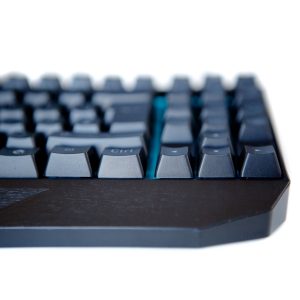 For some people, the click-clack often associated with typing is an integral part of the experience, the noise increasing their enjoyment of the activity.
For some people, the click-clack often associated with typing is an integral part of the experience, the noise increasing their enjoyment of the activity.
For others, the noise can be like fingernails on the chalkboard. They want their keyboards to be as silent as possible.
While some types of switches can limit the noise produced by mechanical keyboards, they will tend to be noisier than their counterparts.
At Penclic, our Mechanical Keyboard MK1 uses less ‘clicky’ Kailh Brown switches. These fall into the “tactile” level of mechanical switches, which have all the feel of a mechanical switch, and some of the noise, but with a sound that is less of the sharp “click-clack” that is often associated with typing.
Mechanical or Not, Penclic Has Keyboard Options for You
As with just about any product, especially any technology product, there is not one keyboard that is right for every user.
Which is right for you? That depends on what your priorities are. If the advantages listed above outweigh the disadvantages for you, it might be time to consider getting a mechanical keyboard.
Regardless, Penclic offers both mechanical and non-mechanical keyboards, each with different strengths. If you are in the market for a keyboard, check out our selection to find one that meets your preferences.

